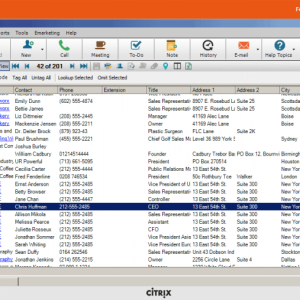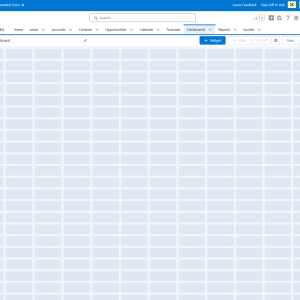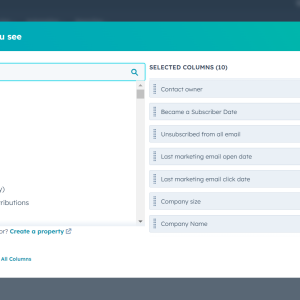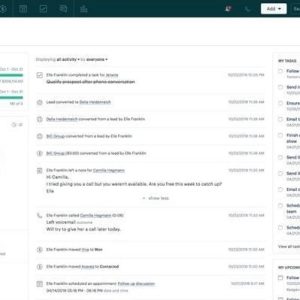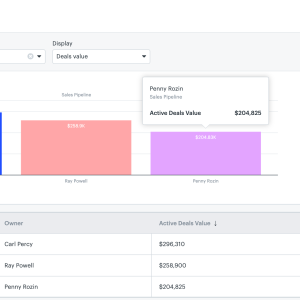In today’s highly competitive business landscape, customer relationship management (CRM) software has become an essential tool for companies looking to streamline their sales and marketing efforts, and improve customer satisfaction. Two major players in the CRM market are Oracle and Salesforce, both offering robust solutions to meet the diverse needs of businesses. While Oracle and Salesforce share the common goal of helping companies manage and analyze their customer data, they differ in various aspects such as features, pricing, and integration capabilities. This article will compare Oracle and Salesforce as CRM providers, analyzing their strengths and weaknesses to help businesses make an informed decision when choosing the right CRM solution for their organization.
Our research has found that Salesforce is the better choice than Oracle when it comes to CRM platforms. Thanks to rich features, immediacy, and a very compelling pricing structure, there’s a reason so many companies adopt its CRM solution.
You are viewing: Oracle vs Salesforce: CRM Providers Compared
That’s not to say that Oracle should be dismissed. Sure, it’s more expensive, but it is a strong CRM platform which has a wealth of integrations and excellent features too. We’re going to talk you through your options and demonstrate what each package offers, helping you make the right choice.
If you’d rather just cut to the chase, you can start with a free personalized quote from Salesforce, or use our CRM software pricing quotes tool to find comparable quotes from different CRM brands.
Of course, these aren’t the only CRM tools to consider. Check out some of these further alternatives, below. Or, scroll on to learn more about Salesforce and Oracle.
Oracle and Salesforce: Sales Clouds Compared
Oddly, both Salesforce and Oracle chose the same name for their core CRM product: Sales Cloud. To avoid any misunderstanding, we’ll just refer to them as Oracle and Salesforce.
Both services make it easy to manage converting leads into opportunities and have that data reflected on reports, dashboards, and summaries. Both have built-in calendars to track key appointments and meetings, as well as social networking-style internal company feeds where sales team members can post information to share with each other.
Taking a look at the two interfaces it’s clear that Salesforce has the more modern look with its Lightning interface. Oracle’s look is capable enough but it relies heavily on icons and switching screens. Salesforce also isn’t quite as busy as Oracle’s compact and icon-based interface.
There are many complementary services on both sides such as platforms for one-to-one marketing, customer service, all the way up to Enterprise Resource Planning (ERP), but we’ll focus here on the two Sales Cloud products.
Oracle Sales Cloud
See more : Zoho CRM vs HubSpot – Price and Features Comparison
Oracle’s version has all the essential data records of a CRM: activities, leads, opportunities, contacts, accounts, as well as analytics and forecasts. It also has a dashboard for each member of the sales team that shows the top open deals, a summary of current top leads, a graph of the current sales pipeline, and the next 10 activities (tasks) that person needs to do. Oracle allows for customization of this section for companies that need more or less information on their dashboard.
One nice feature that Oracle has built-in is Lightbox. This feature allows sales team members to access shared presentation files and download them on demand. Salesforce doesn’t offer a feature like this by default, but its vibrant application market, AppExchange, may have some options that would work.
Salesforce Sales Cloud
In the world of CRM for sales, Salesforce is understandably one of the most popular options out there. It’s got name recognition, a vast library of features, and plenty of resources to provides companies with all the help they need to get started. Especially compared to Oracle, it provides a bit more of a flexible option, as you won’t need an enterprise-level business to get started.
Even better, Salesforce Sales Cloud is extremely customizable and scalable, with prices ranging from $25 to $330 per month depending on your needs. You’ll also have a wide range of team infrastructure features at your disposal, which can be beneficial in the age of remote work. While it is affordable compared to Oracle, there are much more affordable options when it comes to CRM for sales, though, so make sure your budget can handle those high costs.
Salesforce and Oracle Integrations
One of the key considerations when weighing up you CRM options is integrations – that is, what other services and platforms that the CRM software will work alongside, seamlessly. It’s important, because it will save your staff, and you, time, not to mention frustration.
As you might expect, both Salesforce and Oracle boast a large number of integrations.
First off, lets take a look at Salesforce. The service offers full integrations with a range of other software, including Google Cloud, Slack, Quickbooks, Mailchimp, LinkedIn, Docusign, Jira, Hellosign, Code Science, Active Campaign and DropBox. It also recently announced integration with RingCentral.
Next up, Oracle. It has a large number of integrations, from social media and productivity software to e-commerce and beyond. These include Trello, Slack, SurveyMonkey, Shopify, Microsoft Office, Paypal, Evernote and more.
On paper, Oracle offers a wider range of integrations, but it’s suitability for your business depends on the services and software that you use – it’s no good opting for the CRM software that has the most integrations, if you don’t use many of them!

Oracle and Salesforce Pricing
An important factor when choosing your CRM platform is, naturally, price. Our research has shown that Salesforce is the cheaper option, but that doesn’t quite tell the whole story, as it depends on what package you’re most interested in. Lets take a closer look.
How Much is Oracle Sales Cloud?
See more : Salesforce Marketing Cloud Account Engagement Pricing
Oracles Sales Cloud offers four tiers of pricing, with an increasing feature set for each subsequent one. We can tell you what to expect, but for a bespoke quote, use our online CRM quote tool to find the best price for your business.
Oracle Sales Cloud Professional Edition ($65 user/month) – This is the cheapest option, and also the newest addition to the Oracle Sales Cloud family. With it you can expect to get the basics, such as appointments, tasks, sales appointments, automated assignments and so on. You’ll also get sales analytics, the enterprise mobile app, and revenue forecasting.
Oracle Sales Cloud Standard Edition ($100 user/month) – A step up in price here by $45, but you’ll get everything included with the Professional Edition, as well as Oracle Sales Cloud for Outlook, and more customer data management tools, including a customer hub, and customer data steward.
Oracle Sales Cloud Enterprise Edition ($200 user/month) – Add another $100, and you’re onto the Enterprise tier. Again, this includes all the features of previous tiers, as well as more sales performance management tools. These include quote and territory management, incentive commission, and a mobile commissions app. You’ll also have more access to integrations, including Gmail and IBM Notes.
Oracle Sales Cloud Premium Edition ($300 user/month) – Lastly, we have, of course, the Premium Edition. At $300, this isn’t cheap, but it is the most fully fledged package offered by Oracle Sales Cloud. This adds enterprise contracts, whitespace analysis, and Oracle Voice, its AI voice assistant.
How Much is Salesforce Sales Cloud?
Salesforce is one of the most popular CRM options for businesses around the world. Here’s how its pricing plans match up against Oracle:
Salesforce Essentials ($25 user/month) – The most basic package, at $25 a month your expectations might be low, but the Essentials tier is competent, and a good fit for small and fledgling businesses, offering account, contract, lead and opportunity management, email integration with Gmail and Outlook, and the Salesforce Mobile app.
Salesforce Professional ($80 user/month) – The Professional tier brings with it everything in Essentials, as well as lead registration and rules-based lead scoring, as well as collaborative forecasting.
Salesforce Enterprise ($165 user/month) – The Enterprise package folds in everything in Essentials and Professional, but also includes workflow and approval automation.
Salesforce Enterprise ($330 user/month) – Finally, we have Enterprise, which offers the full Salesforce Cloud Sales experience, and adds 24/7 support and configuration services.
One more thing to add about Salesforce Cloud Sales – it offers a free trial, meaning that you can try it before you commit, with no penalty if you decide that it isn’t right for your business.
That’s a wrap on “ Oracle vs Salesforce: CRM Providers Compared ” We hope you’ve found a trove of useful insights and fresh perspectives. Your opinions and ideas matter to us—join the conversation below and share your take! Hungry for more tech insights? Dive into our diverse collection of articles where innovation meets practicality. Discover More CRM Softwares.
Stay in the loop with the latest in AI and tech – your journey into the digital future continues at duanetoops.com.
#Oracle #Salesforce #CRM #Providers #Compared
Source: https://duanetoops.com
Category: CRM
